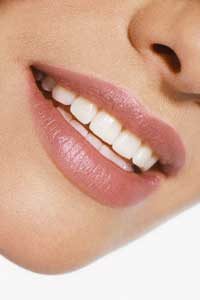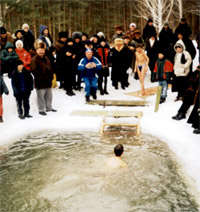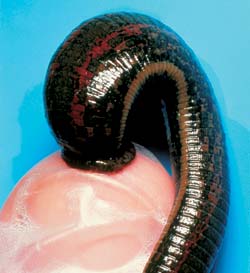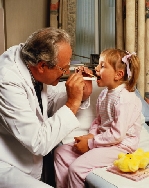Improving immunity
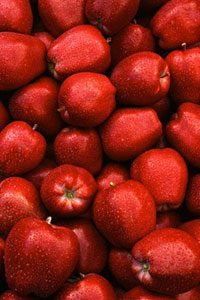 In recent years, we often hear about immunity, the immune system at the doctor’s office, in newspaper articles, in advertising brochures. Most often there are phrases like: “You (or your child) have low immunity”, “You need to raise the immunity”, “Such a means helps to raise the immunity” and similar expressions.
In recent years, we often hear about immunity, the immune system at the doctor’s office, in newspaper articles, in advertising brochures. Most often there are phrases like: “You (or your child) have low immunity”, “You need to raise the immunity”, “Such a means helps to raise the immunity” and similar expressions.
What kind of animal is this, immunity, without which nothing can do, does not move? Is it possible to somehow act on it to achieve health? If possible, what is the best way to do this?
This is a difficult question even for a specialist. But nevertheless we will try to talk simply about the complex. So.
The immune system is a very complex functional structure of the human body, designed on the one hand to maintain the constancy of the cellular composition of organs and tissues, on the other – to repel the aggression of fungi, microbes and viruses that have penetrated the body, as well as other pathogenic factors.
To perform these functions, the immune system must:
timely identify foreign cells (including tumor cells, bacteria, viruses, etc.),
destroy them
remove from the body
to keep the memory of previous invasions in order to respond more quickly to new aggression.
If we draw analogies with society, then the immune system is the police in a state called “the human body”.
It is easy to imagine what is happening in a country where the police is weak: the normal life of citizens becomes impossible from the rampant criminality, the economy is falling, the state is in a state of fever in all kinds of crises. In relation to the immune system, this condition is called immunodeficiency. The cause of immunodeficiency can be a variety of factors. The most frightening of them is the human immunodeficiency virus (HIV). It causes an acquired immunodeficiency syndrome in the body, complicated by frequent infectious lesions, the development of malignant tumors.
On the other hand, police supervision may be reduced to the point of absurdity, to be redundant. The result is massive repression and death of innocent citizens. There is a similar condition in the immune system. The predominance of factors of immunological aggression leads to the emergence of serious diseases, called autoimmune. Examples: rheumatoid arthritis, glomerulonephritis, autoimmune thyroiditis, etc.
There is a third side to immune dysfunction, which is characterized by a perversion of immune responses. In this situation, there is no definite suppression, as in the first case, there is no overstimulation in its pure form, as in the case of autoimmunity.
In other words, the immunity is quite sufficient (not weak and not excessive), but it does not work correctly.
We are talking about allergic reactions. What we often see in the form of attacks of breathlessness, skin rashes, long runny nose, and there is a perverted state of immunity. It is clear that this category of diseases include bronchial asthma, pollinosis (pollen reaction), allergic dermatitis in the form of eczema, urticaria, angioedema, and others.
All immune responses are realized through links of immunity, of which there are two. Namely, cellular and humoral.
Cellular immunity consists of blood cells, lymphocytes, macrophages and others.
Macrophages are the first to meet the aggressor (bacterium or tumor cell), eat it, thereby not only destroying the stranger, but also get to know him closer and pass this information to other cells, lymphocytes.
Lymphocytes, in turn, are divided into two large groups – T-and B-lymphocytes.
T-lymphocytes play a very important role: they know exactly when to start immune responses, and when to slow down. It is this property that makes them a key figure in the entire immune regulation.
In addition, T – lymphocytes themselves are able to kill other people’s cells by the so-called direct cellular cytotoxicity.
Among the T cells and B cells, memory cells are isolated.
B – lymphocytes are radically different from their counterparts in that they can produce special proteins – immunoglobulins, which can bind to foreign proteins (for example, on the membrane of bacteria). As a result, specific substances (complement) circulating in the blood are activated, which kill an alien.
It is immunoglobulins that make up the second link of immunity – humoral. There are several classes of immunoglobulins: A, E, D, G, M.
Immunoglobulin A is produced by mucous membranes, and is involved in primary surface contact with bacteria.
Immunoglobulins G and M implement most of the reactions in the tissues. For example, rheumatoid factor, which is a specific marker of systemic lesions of the connective tissue (rheumatoid arthritis, lupus erythematosus, scleroderma, etc.), belongs to this class.
Immunoglobulin E is interesting in that it is the main actor in allergic reactions. Moreover, for each allergen it produces its own immunoglobulin E, which allows us, by determining its levels in the blood, to say exactly what the person is allergic to.
